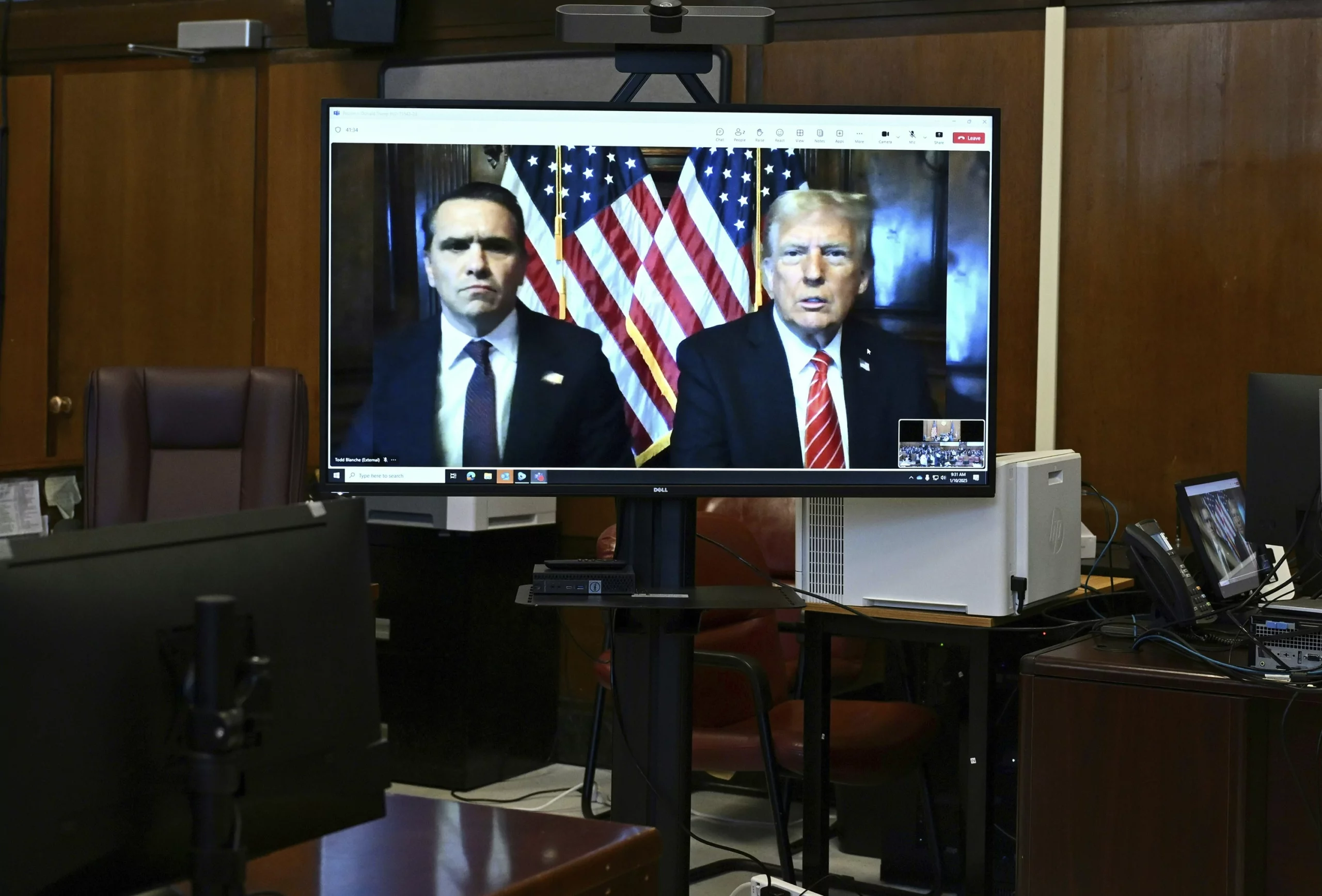

President-elect Donald Trump is poised to become commander in chief again, this time as a convicted felon but one who has been able to sidestep sentences in three of the four criminal cases against him.
The no-penalty sentence handed down by New York Judge Juan Merchan in Trump’s hush money trial on Friday, an “unconditional discharge,” concludes a saga from which the president-elect has emerged politically more powerful than before.
Republicans, including party strategist John Feehery, excoriated the New York hush-money case, in which a jury found Trump guilty of all 34 felony counts of falsifying business records so he and his attorneys could cover up payments made to former porn star Stormy Daniels in exchange for her silence regarding their alleged extramarital affair in 2006 before the 2016 election.
“It’s a bulls*** conviction that says more about our broke political system than it does about Trump’s personal conduct,” Feehery, a partner at EFB Advocacy, told the Washington Examiner. “The Democrats have done more to undermine trust in our judicial system with this conviction than any Trump has ever said or done.”
Former U.S. Attorney Bud Cummins similarly criticized the people behind the case, particularly Merchan, Manhattan District Attorney Alvin Bragg, and his predecessor Cyrus Vance Jr., contending “lawfare is out of control.” Vance, however, did decline to prosecute the matter.
“Unless New York appellate courts quickly reverse these decisions, the other 49 states should give New York prosecutions the same credibility as convictions out of Russia or Cuba,” Cummins told the Washington Examiner. “This trend had to be stopped and voters thankfully took action last November.”
Presidential biographer Craig Shirley reiterated that Trump “was elected and everybody knew then of the other false charges against him them and he still won.”
“Liberals predictably will try to make something of this demonstrating they have learned nothing from the outcome of the election,” Shirley told the Washington Examiner. “This will only make him stronger.”
Although Trump did not suffer politically from his criminal cases, winning last year’s election against Vice President Kamala Harris in the Electoral College and popular vote, there is at least one practical ramification, according to Cummins.
“Federal law imposes criminal sanctions on any felon in possession of a firearm,” Cummins, the attorney, said, adding Trump retains his voting rights because of New York and Florida state law.
As with everything related to Trump, reactions will be polarized, per Claremont McKenna College politics professor John J. Pitney, Jr.
“Supporters will say the conviction was an injustice. Opponents will say the lack of punishment is an injustice,” Pitney told the Washington Examiner.
One of those opponents is former Maryland Attorney General Douglas Gansler, now a partner at Cadwalader, Wickersham & Taft LLP, who argued “the fact that we have a president who is a convicted felon speaks more about us than it does about him.”
“This was highlighted this week by the sharp contrast between the humility, humanity, empathy, and character of former President Carter as opposed to President Trump, who famously once said in a debate that he could stand on Fifth Avenue and shoot someone and it would not hurt him or his voters,” Gansler told the Washington Examiner.
During Trump’s sentencing in New York City on Friday, Merchan told the president-elect he had “determined that the only lawful sentence that permits entry of a judgment of conviction without encroaching upon the highest office in the land is an unconditional discharge.”
“Ordinary citizens do not receive those legal protections. It’s the office of the president that bestows those far-reaching protections to the office holder and it was the citizenry that recently decided you should once again receive the benefits of those protections, which include the supremacy clause and presidential immunity,” Merchan said. “They do not reduce the seriousness of the crime or justify its commission in any way. One power they do not provide is the power to erase a jury verdict.”
Trump spoke before Merchan from Mar-a-Lago in Palm Beach, Florida, via Microsoft Teams, repeating his complaints that the case was an example of “a weaponization of government” and, in doing so, displaying no contrition. He had earlier applied to the Supreme Court to stop Merchan from sentencing him, though Justice Amy Coney Barrett sided with Chief Justice John Roberts and their liberal counterparts to deny his emergency request.
“This has been a very terrible experience,” Trump said. “I think it has been a tremendous setback for New York and the New York court system.”
In a separate post on his social media platform Truth Social, Trump promised to “restore the trust of Americans in our once great System of Justice” and previewed his plans to appeal the “hoax” case and “despicable charade” of sentencing.
“The real Jury, the American People, have spoken, by Re-Electing me with an overwhelming MANDATE in one of the most consequential Elections in History,” he wrote. “As the American People have seen, this “case” had no crime, no damages, no proof, no facts, no Law, only a highly conflicted Judge, a star witness who is a disbarred, disgraced, serial perjurer, and criminal Election Interference.”
CLICK HERE TO READ MORE FROM THE WASHINGTON EXAMINER
The federal cases pertaining to allegations Trump mishandled classified documents and participated in a conspiracy to overturn the results of the 2020 election interference brought against Trump by special counsel Jack Smith have been dismissed for the president-elect, but not for all of his co-defendants. The state case against Trump in Georgia for election racketeering has been pending since Fulton County District Attorney Fani Willis was disqualified from the matter because of her personal relationship with special prosecutor Nathan Wade.
Trump did have civil judgments made against him, including for business fraud, in addition to the sexual abuse and defamation of E. Jean Carroll.






